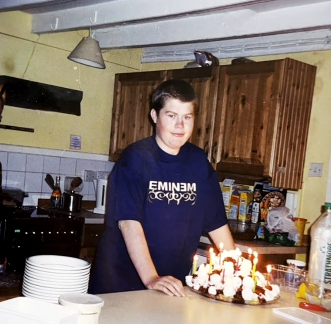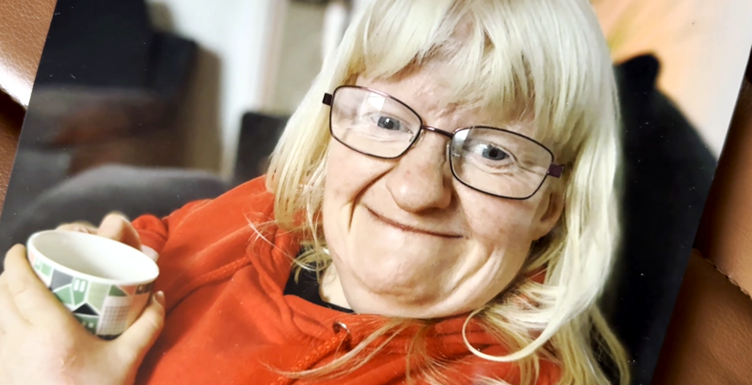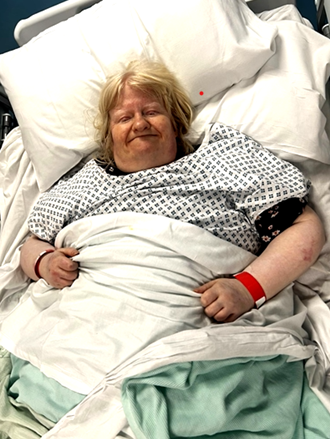Better understanding = Better lives
Our campaign to improve awareness of PWS among professionals and policy makers.
With the right care and support, people with PWS can now live much longer and healthier lives. However, in too many cases, PWS is still being mismanaged - with devastating consequences.
In May, we hosted an event for policymakers at the House of Lords to raise awareness of three key challenges faced by people with PWS:
- Hyperphagia - the
persistent insatiable hunger people with PWS feel and the implications this has for support needs and mental capacity.
- The absence of warning signs in a medical emergency - how serious injury and illness can be missed in people with PWS.
- The need for
specialist support for people with PWS across all areas of life.

Following our campaign event, we have been invited to join the All-Party Parliamentary Group (APPG) on Genetic, Rare and Undiagnosed Conditions.
This influential cross-party group is currently reviewing the Rare Diseases Framework and our involvement means we can make sure the needs of those with Prader-Willi Syndrome are heard in this.
We recently attended our first meeting, and highlighted the need for patient groups to be consulted as subject matter experts before assessments are carried out across health, social care, and education services.
We emphasised the importance of ensuring that assessors have a clear understanding of Prader-Willi Syndrome (PWS), including the significant and wide-ranging impact it has on daily living.
This understanding is essential to delivering fair and informed decisions that genuinely meet the needs of those living with PWS.

Sadly, our support team receive far too many calls where the implications of hyperphagia for people with PWS have not been properly understood by professionals.
This leads to inappropriate decisions about the care and support they need, leaving people in danger, with inadequate care.
We need all professionals to understand that without strict control of food intake, people with PWS are at serious risk of harm.
We also need them to recognise that people with PWS should never be deemed to have mental capacity around food.
This is being ignored in too many cases, with devastating consequences.
Charlie's Story

Charlie Gooding died in 2022, weighing over 200kg, after he was deemed to have the mental capacity to make his own decisions about food and money....
Charlie had previously been living in a specialist PWS setting in Northampton, where his weight was well controlled, but he was unhappy living so far away from his friends and family in Manchester.
He moved back home and was discharged into the care of his GP, who deemed Charlie to have the mental capacity to make his own decisions about food and money. Charlie’s weight escalated at an alarming rate but without a power of attorney in place, Charlie’s family were not allowed to input into decisions about his care, and were powerless to intervene as his health deteriorated.
Charlie’s mum, Annabel says “Charlie strove for autonomy and independence, and wanted to be in charge of his life. He was very articulate, but in terms of understanding himself and what he needed to do to control his behaviour and appetite, he couldn’t do those things. Nobody understood the seriousness of Prader Willi Syndrome.”

People with PWS have a unique set of medical vulnerabilities, meaning they may not present with typical warning signs in a medical emergency
- Individuals may lack a vomit reflex, increasing the risk of poisoning and gastrointestinal rupture.
- A high pain threshold means injuries like fractures can go unnoticed.
- Impaired temperature regulation means people may not develop a fever when they have an infection, leading to missed diagnoses.
- People with PWS will normally still eat and drink, even when seriously unwell.
These atypical symptoms mean that standard medical protocols often fail individuals with PWS, sometimes with devastating outcomes.
 Write your caption here
Write your caption here Write your caption here
Write your caption here
Kate's story...
Kate was left permanently disabled and unable to walk after a double fracture and infection in her hip joint was missed by clinicians...
Despite complaining of pain in her leg, due to Kate’s high pain threshold, she was dismissed without it being properly investigated. Her carers were told to try to make her walk on it and that it was probably psychological.
Subsequently a large infection developed around the fracture site, which was also missed, as Kate wasn’t presenting with a temperature.
By the time the fractures and infection were discovered, it was so severe that surgeons had to carry out a girdle stone procedure, removing Kate’s whole hip joint, and grafting her leg to her pelvis.
Kate also put on a large amount of weight in hospital after her surgery, despite her sister, Vicki trying to inform nursing staff about her PWS.
Kate’s sister, Vicki says, ‘Kate was a happy, loving, sociable person and she lived a full life. She loved walking the dogs, shopping, and socialising with friends and family. Now, all that’s changed. All she can do is sit in her bed or her chair in her room.’
‘If the medical professionals had fully understood the characteristics of PWS, my sister could still be doing all the things she loved. I feel so sad for her, I don’t want this to happen to anyone else.’
We are now in discussions with NHS England to try and add red flags to medical notes to ensure that every clinician who sees with someone with PWS is aware of these specific vulnerabilities.

Caring for someone with PWS needs specialist knowledge and understanding of the syndrome.
There is guidance for medical, education and social care for young people with PWS. Unfortunately, in too many cases this guidance is not adhered to. All too often this is because of a lack of understanding of PWS.
The cost of implementing best practice doesn’t have to be more expensive - it should ultimately save costs as well as prevent further suffering for people with PWS as well as their families.
What are we asking for?
1: 24 hour support
We need professionals to acknowledge that everyone with PWS requires provision for 24hr support to keep them safe and enable them to thrive.
For children this includes access to respite and specialist wraparound care to relieve pressure on carers, as well as social care and support in education and employment for adults.
2: PWS care to follow best practice guidelines
Peer reviewed guidance exists and must be followed by professionals
The consensus guidelines recommend that everyone with PWS is seen in a specialist multidisciplinary clinic, however, many people are not able to access these.
3: All adults with PWS to be able to access specialist residential settings
Evidence shows dramatically better outcomes for BMI and behaviours of concern in specialist PWS settings. Unfortunately there aren’t enough of these to enable access for most adults.
4: Red flags added to medical notes
To ensure medical emergencies are spotted and fatalities avoided.
5: New medication needs to be approved and funded quickly
Several clinical trials of new treatments are happening - approval of new treatments will save money and lives.

